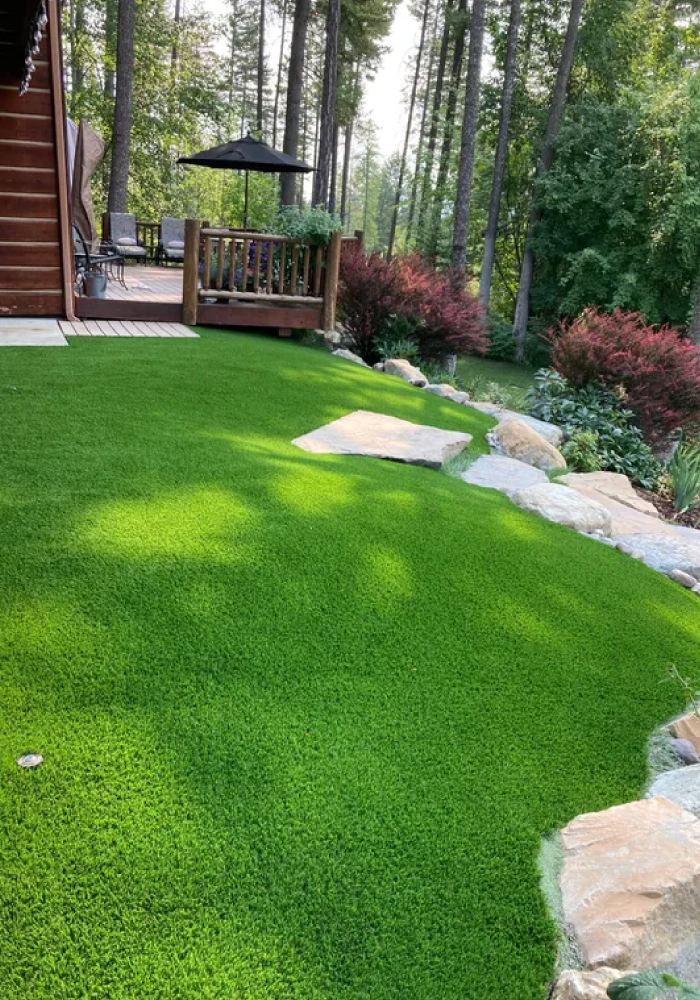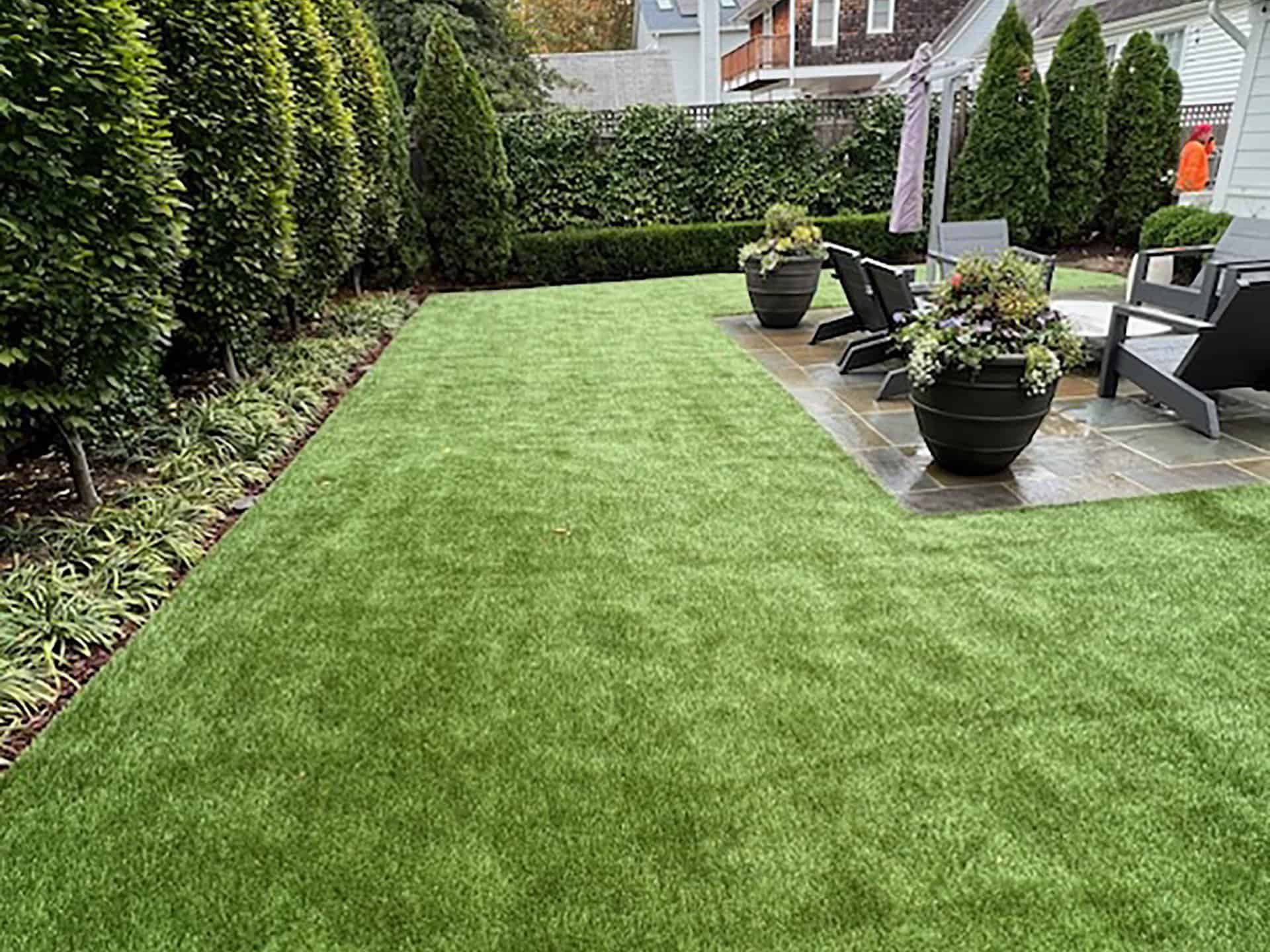Professional Arizona Turf Installation Services for Home and Business Use
Professional Arizona Turf Installation Services for Home and Business Use
Blog Article
Look Into the Environmental Perks of Opting for Synthetic Grass Solutions
The adoption of synthetic grass options provides an engaging chance to address pushing ecological challenges. By dramatically minimizing water use and reducing the application of damaging chemicals, these alternatives not only promote lasting landscaping yet likewise secure local communities. The reduced carbon impact associated with reduced upkeep activities contributes to a much more lasting approach to land monitoring. Nevertheless, the ramifications of these benefits expand past mere conservation initiatives, questioning about their long-lasting effect on habitat conservation and general eco-friendly balance. Checking out these measurements reveals a complicated interaction worth taking into consideration.
Water Conservation Benefits
One of the most considerable benefits of man-made grass is its capability to save water. Traditional grass yards need substantial watering, particularly in areas prone to drought or water limitations. On the other hand, man-made grass does not need watering, considerably minimizing the general demand for water resources. This attribute is specifically useful in deserts where water deficiency is a pressing problem.
By getting rid of the need for normal watering, man-made turf adds to lasting landscape methods and assists minimize the ecological effect of extreme water usage. The conservation of water prolongs to the decrease of runoff, which can lead to soil disintegration and river pollution.
Furthermore, the installation of fabricated grass permits homeowners and towns to allocate water resources much more effectively, focusing on vital usages such as alcohol consumption water and agriculture. The change towards man-made lawn not just advertises liable water use but likewise lines up with wider ecological objectives focused on preserving natural deposits.
As neighborhoods progressively focus on sustainability, the water preservation benefits of synthetic grass present a compelling case for its fostering in industrial and domestic landscaping projects.
Decreased Chemical Usage
The transition to synthetic lawn substantially reduces the reliance on chemical treatments commonly made use of in natural grass maintenance. Traditional lawn monitoring generally involves the application of herbicides, pesticides, and fertilizers to promote growth and control insects. These chemicals can position risks to human health and wellness, regional wild animals, and the setting, adding to dirt and water contamination.
On the other hand, synthetic grass gets rid of the requirement for these harmful materials. When installed, it requires minimal upkeep, largely including regular cleansing and occasional infill replenishment. This decrease in chemical usage not only benefits the prompt atmosphere but additionally contributes to broader eco-friendly stability. By minimizing the launch of synthetic substances into the ecosystem, synthetic grass advertises much healthier soil and water supply.
Moreover, the absence of chemical drainage related to synthetic grass installments helps secure neighborhood waterways from contamination, supporting marine life and preserving biodiversity. Arizona turf. As neighborhoods significantly focus on lasting practices, going with synthetic grass presents a practical service that aligns with environmental conservation goals. Via this shift, residential property proprietors can delight in rich eco-friendly areas without compromising ecological health and wellness, leading the method for a much more lasting future
Reduced Carbon Impact

In addition, the setup of artificial turf can lead to substantial water preservation. All-natural lawns require significant amounts of water for watering, which not just contributes to the carbon footprint associated with water extraction and treatment however additionally pressures neighborhood water sources. In contrast, synthetic turf needs very little maintenance, needing no watering, consequently significantly reducing water usage and its associated power prices.
In addition, the long life of synthetic grass adds to its reduced carbon impact. With a lifespan of up to 15 years or more, the demand for constant substitutes is read the full info here reduced, leading to much less waste and lower energy intake in production and taking care of typical lawn options. Generally, synthetic grass presents a lasting alternative for eco mindful landscaping.
Habitat Preservation
Habitat preservation is a crucial factor to consider in the discussion over landscaping options, particularly when contrasting synthetic grass to all-natural yard. All-natural grass lawns often need extensive maintenance, including using plant foods, pesticides, and herbicides, which can detrimentally impact local communities. These chemicals can seep right into the soil and rivers, hurting native plants and fauna and disrupting neighborhood habitats.
Man-made lawn gets rid of the requirement for unsafe chemicals, therefore protecting nearby wildlife and keeping the integrity of surrounding ecosystems. The setup of synthetic grass can lead to the conversion of previous lawn areas into more biodiverse landscapes, such as pollinator yards or indigenous plant areas, which can support local wildlife.
Eventually, the shift to synthetic grass not only saves water and lowers upkeep efforts however also fosters a more harmonious relationship in between human tasks and the natural surroundings, promoting environment conservation in the process.
Long-Term Sustainability
Long-term sustainability is an important consider evaluating the benefits of man-made turf over conventional turf yards. Among the most significant benefits of synthetic grass is its longevity; it can last as much as 15-20 years with minimal maintenance, whereas all-natural lawn requires constant reseeding and substitute. This durability decreases the need for consistent resources, such as water, plant foods, and chemicals, which are necessary for preserving a healthy and balanced turf lawn.
Furthermore, fabricated grass adds to a reduction in carbon exhausts connected with yard care devices. Conventional grass typically call for gas-powered lawn mowers, trimmers, and blowers, all of which add to air pollution. Phoenix turf companies. In contrast, synthetic grass removes the requirement for such devices, advertising a cleaner environment
In addition, the production of fabricated grass increasingly uses recycled products, enhancing its sustainability account. As manufacturers take on environment-friendly techniques, the environmental footprint of synthetic grass proceeds to diminish.

Final Thought
The adoption of synthetic grass services offers substantial ecological advantages, consisting of substantial water preservation, decreased reliance next on harmful chemicals, and a reduced carbon footprint. In addition, synthetic lawn aids in maintaining natural environments by lessening land disturbance and advertising long-term sustainability with using sturdy materials. Jointly, these elements emphasize the potential of synthetic turf to contribute positively to ecological health and use a feasible choice to traditional landscaping techniques in a significantly resource-conscious world.
In comparison, fabricated turf does not need watering, dramatically decreasing the total demand for water sources. By reducing the launch of artificial compounds into the environment, fabricated turf promotes much healthier dirt and water systems.
Furthermore, the setup of man-made grass can result in significant water preservation. In comparison, fabricated turf needs minimal maintenance, requiring no watering, consequently considerably reducing water use and its connected energy prices.

Report this page